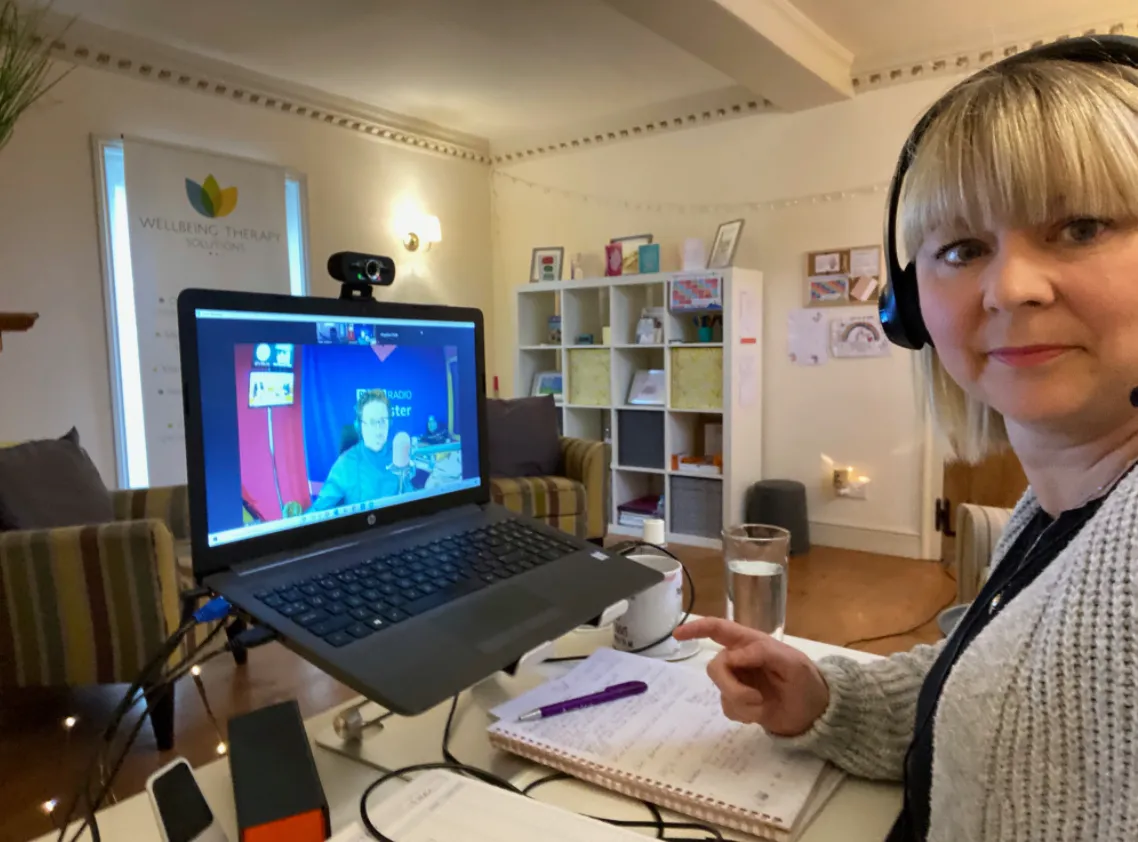
Grounding techniques explained on Radio Leicester’s ‘Zen to Eight’ slot with host Jimmy Carpenter
Have you ever heard of the ‘Zen to Eight’ slot on Radio Leicester in the mornings?
Well, it’s something that host Jimmy Carpenter does at, funnily enough, ten to eight!
It’s a 10-minute part of the show where, as they say, they ‘press pause from the news and set you up for the day with tips from the world of health and wellbeing’.
It’s a great initiative that serves the community in a positive way so well done to Radio Leicester.
Jimmy invited me to be a guest on that slot earlier this week and, as ever, it was a pleasure to be on the show and explain to listeners about some grounding techniques.
Grounding tool
I had previously posted on the Wellbeing Therapy Solutions social media channel a bit about the ‘Five senses grounding tool’ which is a useful part of mindfulness practise.
As Jimmy explained, senses are easy to take for granted because we use them all of the time.
But they can be really useful for keeping us in the present moment and that helps us stop our minds racing towards something that has happened in the past or worrying about something that may happen in the future.
The knock-on effect of that is that it can help us keep feelings like anxiety and pressure at bay and make us feel calmer about what’s around us in the present moment.
Senses activity
If you would like a go, just follow me…
Stop and take two or three deep breaths. Our senses help us connect to our body by using what’s around us.
Then, look and name five different things you can see around you. Anything you like. Say them out loud if you want to.
Then find four things that have different textures – and touch them.
Listen for three different sounds using your auditory senses and if you are somewhere quiet, that can take a while. Just be patient. There is no rush.
Then pick out two different things you can smell. Again, this may take some time but you can move to find them if you want.
Finally, find one thing you can taste. Maybe pop a mint in your mouth if you are struggling to find something.
Hopefully, after doing that, you will be very much in the present moment and you will have stopped your mind wandering wherever it was going.
If you get used to knowing when it is a good time to do this, it will help you. It is basically about practising calmness, connecting with here and now, and you can do it wherever you like.
Please let me know if it has helped you by writing in the comments below.
Positive outlook
Finally, Tuesday marked a year since the start of our first lockdown.
I remember 23 March, 2020 and wondering what was about to come for me, my family and friends.
It’s safe to say none of us could have predicted the impact and just how much the pandemic has affected so many of us in so many different ways, young or old. It has been a tremendously anxious time for all of us.
Hopefully, we are heading towards brighter times now. I have been trying to focus on all of the positives that may be around the corner to keep looking after my own mental health and remaining convinced that we can get to the next phase of re-opening.
I hope the next few months provide you with some positivity and calmness and that we can be courteous and kind to each other to help us all emerge from a hugely testing 12 months.
Listen to… Kate on Radio Leicester. Scroll through to 1hr 52mins and press ‘play’ here.
Read more: Why and how I can help your child
Watch: Support your staff with our wellbeing services…










